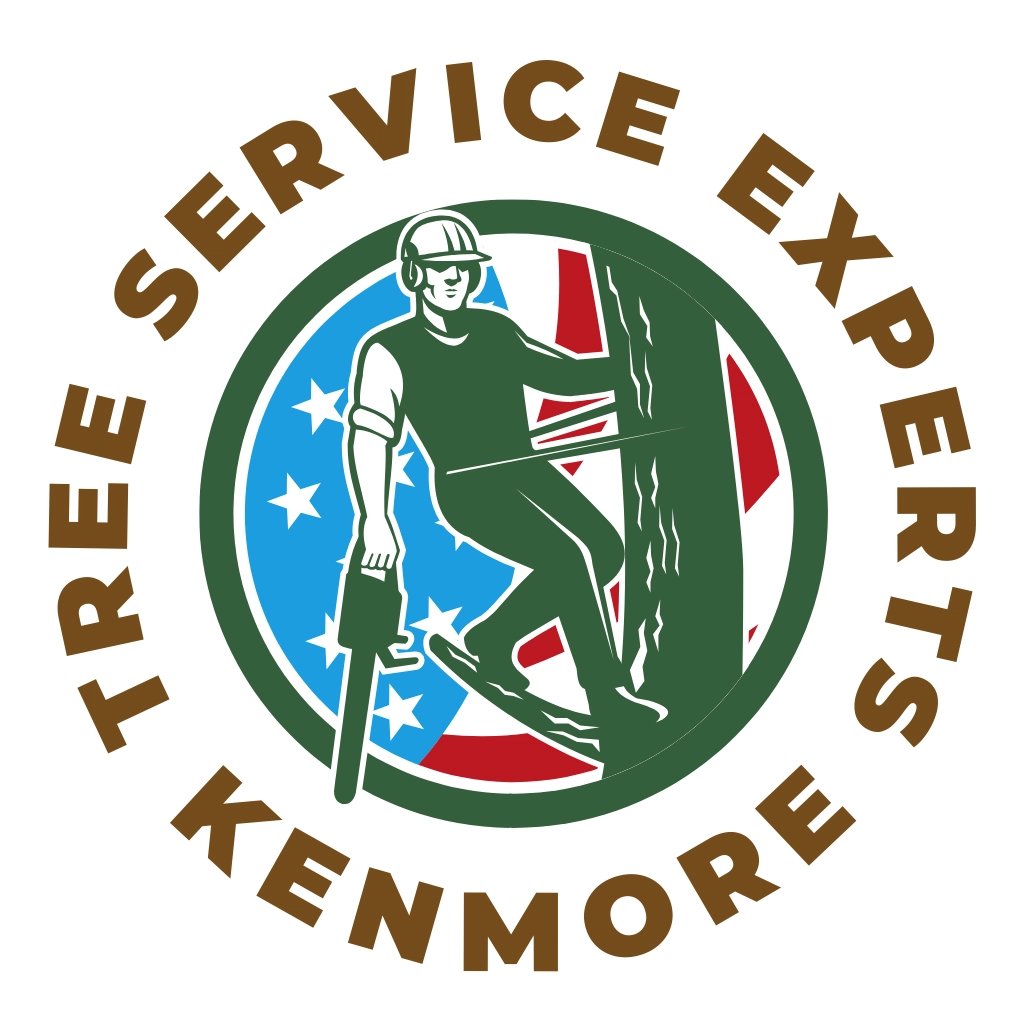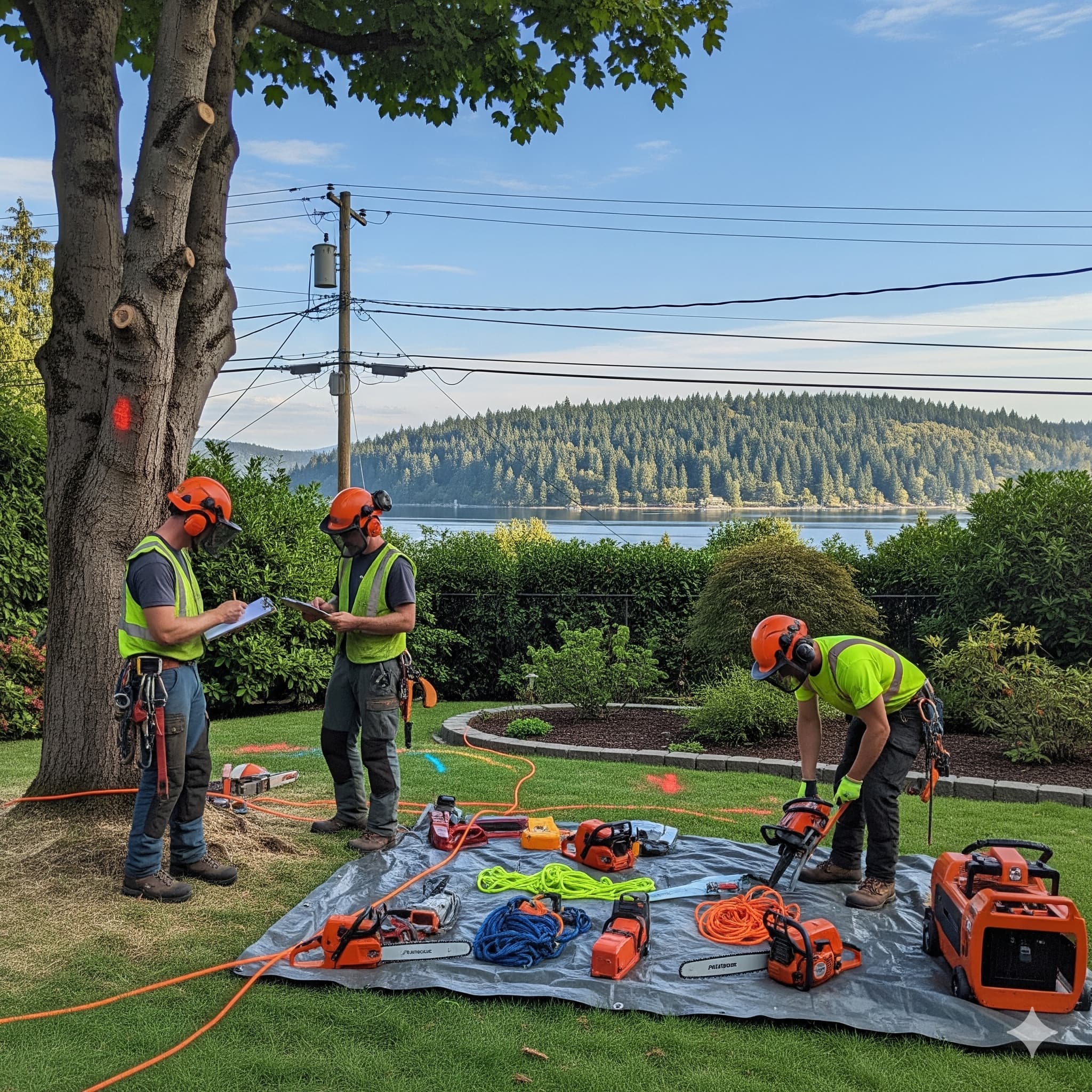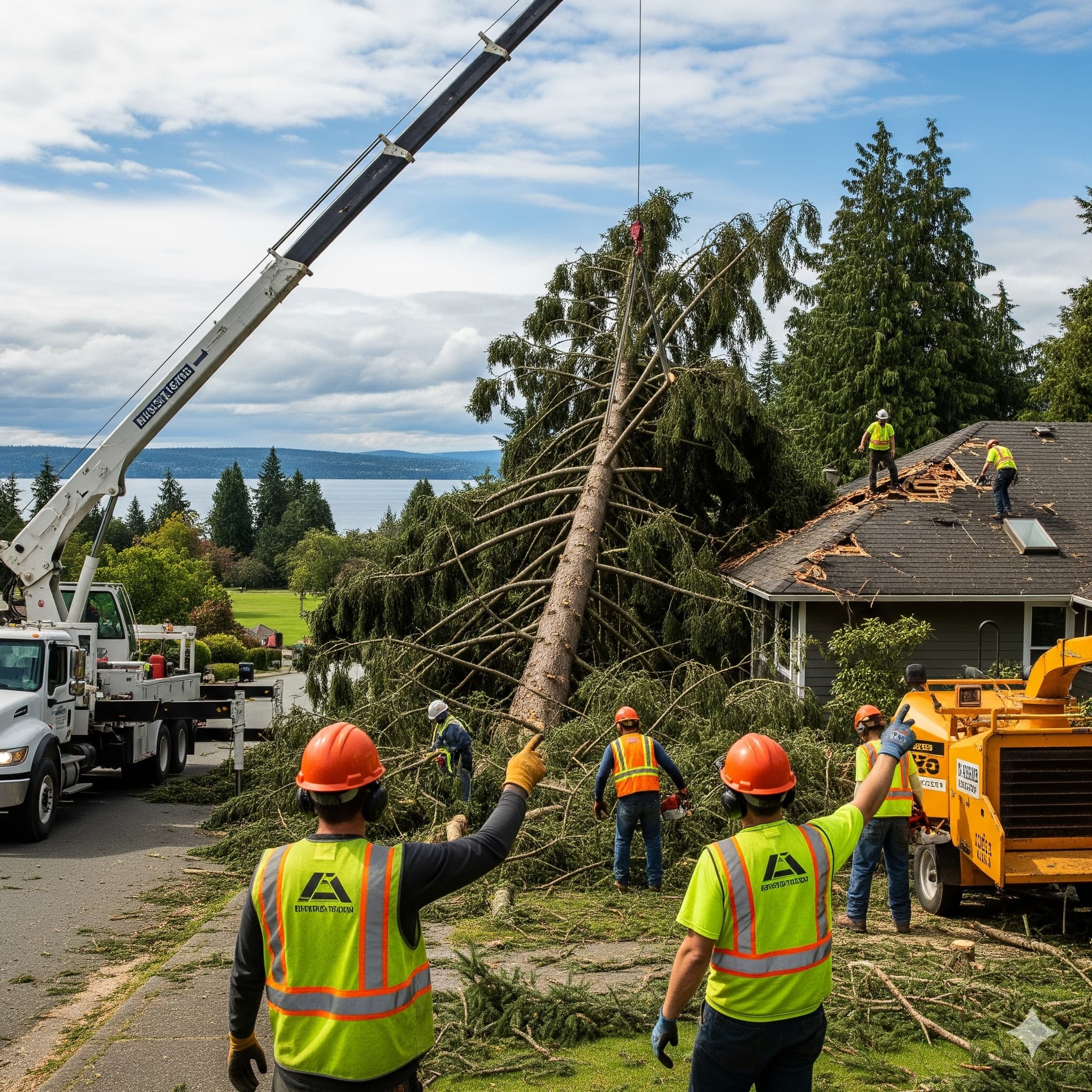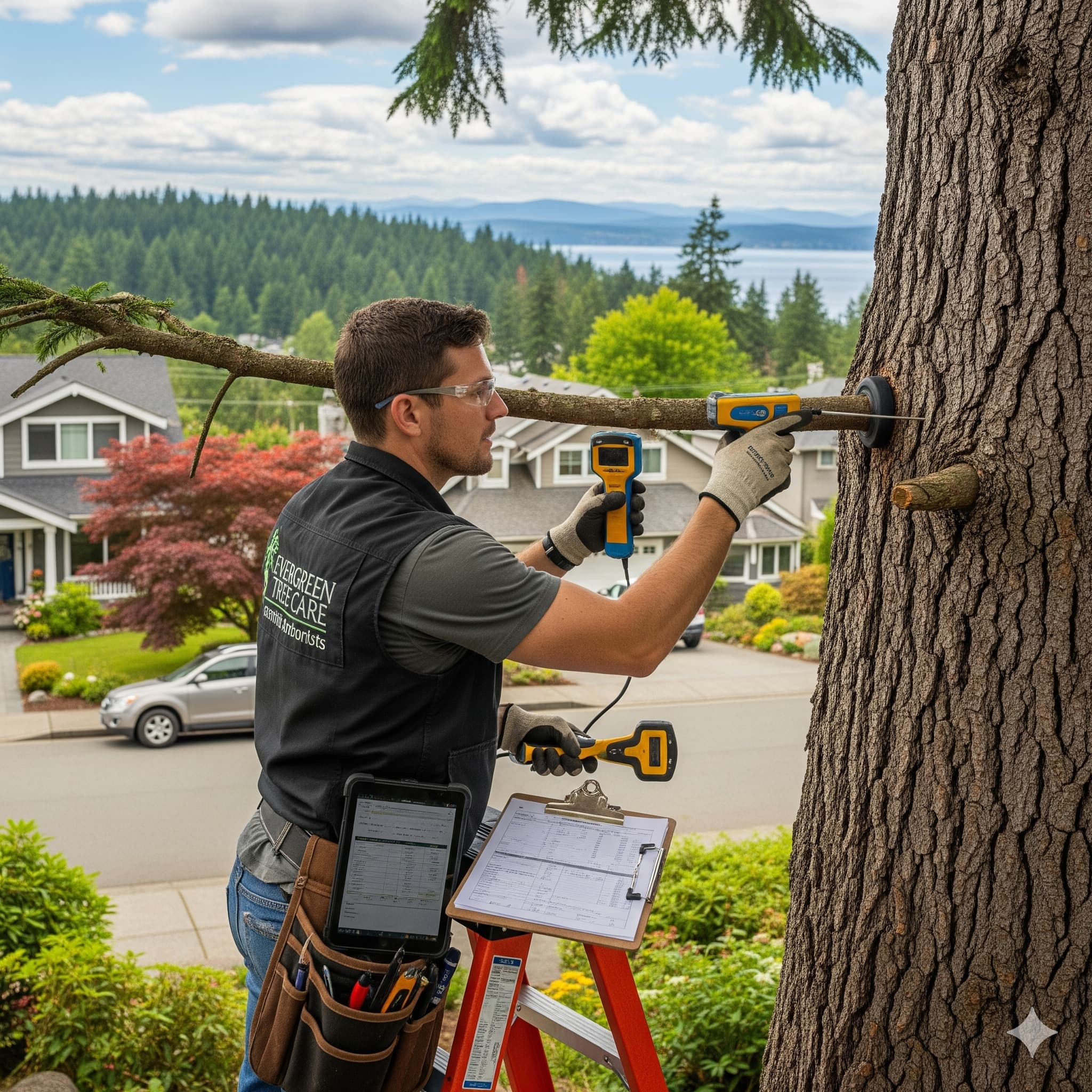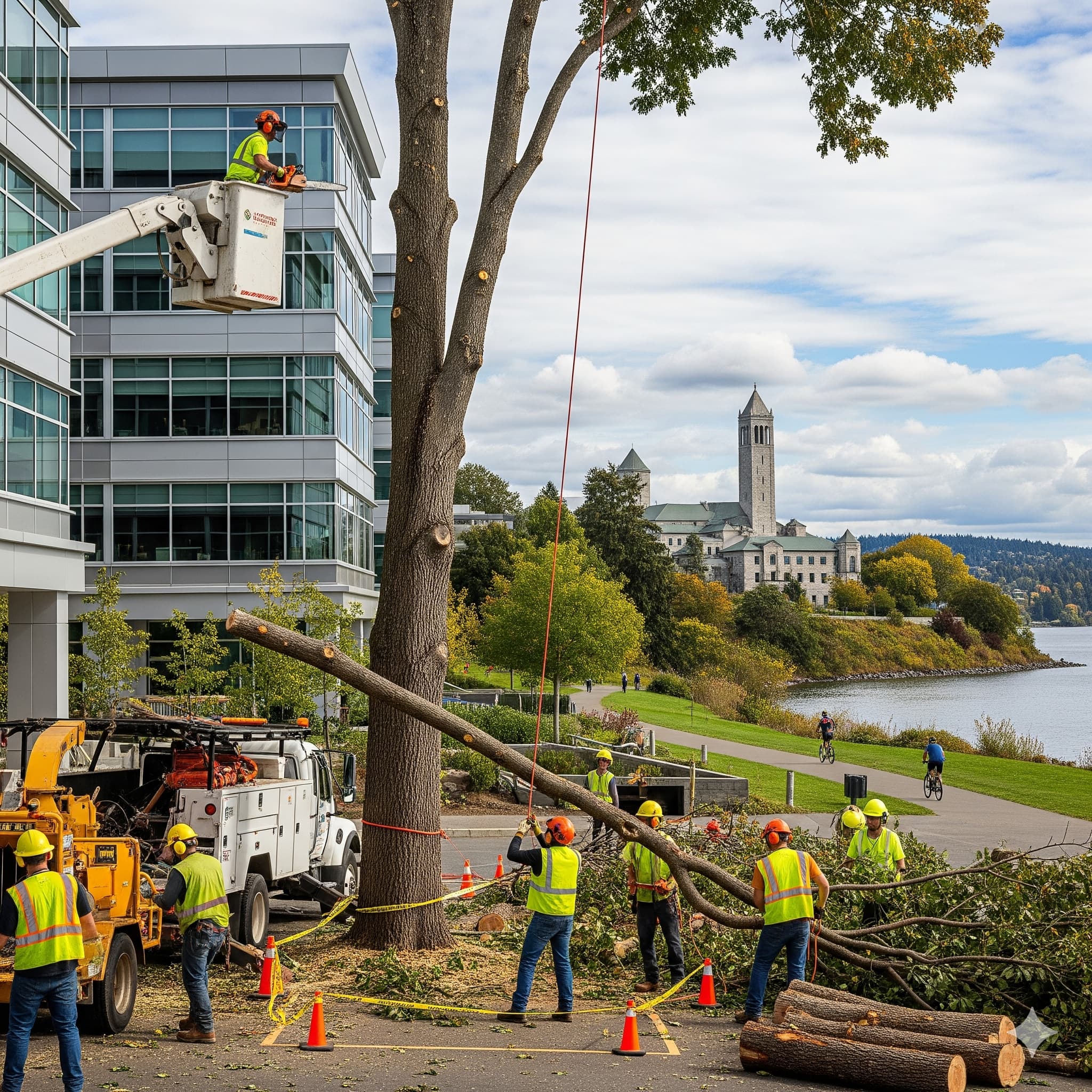
Tree Health Assessment in Kenmore's Urban Landscape
Tree Health Assessment Kenmore
As Kenmore continues to prioritize environmental stewardship as the City Council’s top priority for 2025, tree health assessment emerges as a critical component in maintaining the community’s cherished urban canopy. From the scenic waterfront along Lake Washington to the preserved forests of Saint Edward State Park, professional assessment programs protect valuable tree resources while ensuring public safety throughout the city’s diverse neighborhoods.
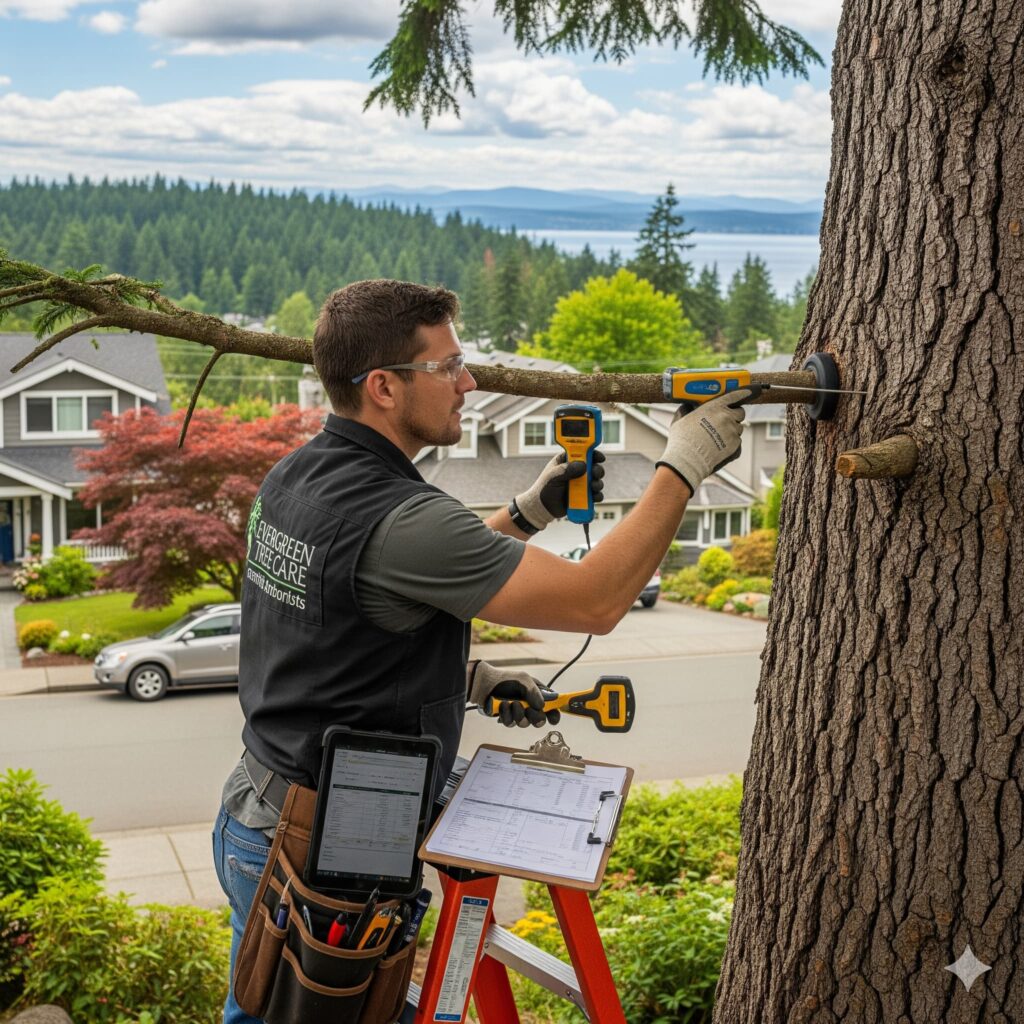
Foundation of Urban Forest Management
A comprehensive tree health assessment provides the scientific foundation for all urban forestry decisions in Kenmore. Without accurate health data, municipalities cannot make informed choices about treatment priorities, resource allocation, or long-term canopy planning that supports community sustainability goals.
Systematic Monitoring Approaches
Professional tree health assessment utilizes standardized protocols that evaluate multiple factors, including crown condition, structural integrity, pest presence, and environmental stress indicators. These systematic approaches ensure consistent data collection across diverse species populations from Douglas Firs near the Sammamish River to ornamental trees lining residential streets.
Early Detection and Intervention Benefits
Regular tree health assessment enables early detection of problems before they become costly emergencies or safety hazards. Trees showing initial stress symptoms can often be saved through targeted treatments, preserving property values and environmental benefits throughout Kenmore’s established neighborhoods.
Preventing Disease Spread
Professional assessment protocols identify diseased trees before pathogens spread to healthy specimens. Properties near Log Boom Park and other community areas benefit from this proactive approach that protects entire tree populations from devastating disease outbreaks.
Cost-Effective Management
Early intervention guided by professional assessment costs significantly less than emergency removal and replacement following tree failure. Kenmore homeowners near Bastyr University and throughout the city report substantial savings through preventive care programs that address problems before they escalate.
Technology Integration in Modern Assessment
Advanced technologies now enhance traditional visual assessment techniques, providing more accurate and comprehensive tree health data for urban forest management decisions.
Remote Sensing Applications
High-resolution satellite imagery and drone-based assessments can monitor tree health across large areas efficiently. These technologies prove particularly valuable for assessing trees in challenging locations near Wallace Swamp Creek or throughout the extensive Burke-Gilman Trail corridor.
Non-Destructive Testing Methods
Modern diagnostic tools allow a detailed internal assessment without damaging trees. Techniques, including resistance drilling, sonic tomography, and ground-penetrating radar, provide critical structural information while preserving tree health.
Public Health and Safety Connections
Tree health assessment directly supports public health and safety goals by identifying potential hazards before they threaten people or property. This proactive approach aligns with Kenmore’s commitment to community wellbeing and environmental stewardship.
Risk Mitigation Strategies
Professional assessment identifies structural defects, disease symptoms, and environmental stress factors that could lead to tree failure. Properties near Moorlands Park and other high-traffic areas benefit from systematic risk evaluation that prevents accidents and property damage.
Air Quality and Climate Benefits
Healthy trees provide maximum air purification and climate regulation benefits. Assessment programs ensure trees maintain optimal health for delivering environmental services that improve the community’s quality of life throughout Kenmore’s residential areas.
Professional Expertise Requirements
Effective tree health assessment requires specialized training and certification that combines botanical knowledge, diagnostic skills, and risk evaluation expertise. Certified arborists understand species-specific health indicators and appropriate intervention strategies.
Standardized Assessment Protocols
Professional arborists follow established protocols that evaluate crown condition, trunk integrity, root health, and overall vigor using consistent criteria. This standardization ensures reliable data for management decisions while supporting insurance and liability requirements.
Continuing Education and Certification
Tree health assessment techniques continuously evolve with new research and technology. Professional arborists maintain current certification through ongoing education that incorporates the latest diagnostic methods and treatment strategies.
Community-Wide Assessment Programs
Systematic tree health assessment programs benefit entire communities by providing comprehensive data for urban forest planning and management decisions.
Municipal Tree Inventories
Professional assessment supports comprehensive tree inventories that document species, condition, and management needs across public properties. These databases guide maintenance scheduling, budget planning, and replacement priorities throughout Kenmore’s parks and street trees.
Neighborhood Assessment Initiatives
Residential areas near Rhododendron Park and throughout Kenmore benefit from coordinated assessment programs that identify community-wide trends and shared management opportunities.
Environmental Stewardship Integration
Tree health assessment supports Kenmore’s environmental stewardship goals by ensuring management decisions consider both individual tree health and ecosystem-wide impacts.
Biodiversity Conservation
Assessment programs evaluate trees’ role in supporting wildlife habitat and ecosystem diversity. This comprehensive approach maintains ecological balance while addressing human safety and aesthetic concerns.
Climate Change Adaptation
Professional assessment identifies trees’ resilience to changing climate conditions while recommending species and management strategies that support long-term urban forest sustainability.
Economic Impact Assessment
Tree health assessment provides essential data for understanding the economic value of urban forest resources and justifying investments in professional care programs.
Property Value Protection
Healthy trees contribute thousands of dollars in property value, while sick or hazardous trees create liability concerns. Professional assessment helps property owners make informed decisions that protect their investments while maintaining community forest health.
Infrastructure Protection
Assessment programs identify trees that may threaten utilities, sidewalks, or buildings, allowing proactive management that prevents costly damage and service interruptions.
Future Directions and Innovation
Tree health assessment continues evolving with new technologies and methodologies that improve accuracy while reducing costs and time requirements.
Integrated Data Systems
Modern assessment programs integrate with geographic information systems and mobile technologies that streamline data collection and analysis. These advances support more efficient management of Kenmore’s diverse urban forest resources.
Citizen Science Opportunities
Community involvement in basic assessment activities can supplement professional evaluations while building public awareness about urban forest health. Training programs help residents identify early warning signs that warrant professional attention.
Professional Partnership Benefits
Working with qualified tree health assessment professionals ensures accurate diagnosis and appropriate treatment recommendations that support long-term urban forest sustainability.
Tree Service Experts Kenmore combines certified expertise with local knowledge to provide comprehensive tree health assessment services that protect community forest resources while ensuring public safety. Professional assessment programs represent essential investments in Kenmore’s environmental future, supporting the community’s commitment to sustainable urban forest management.
Through systematic assessment and professional expertise, Kenmore maintains its reputation as a community that values environmental stewardship while ensuring the safety and beauty that make the area so desirable for families and nature enthusiasts throughout the Pacific Northwest region.
